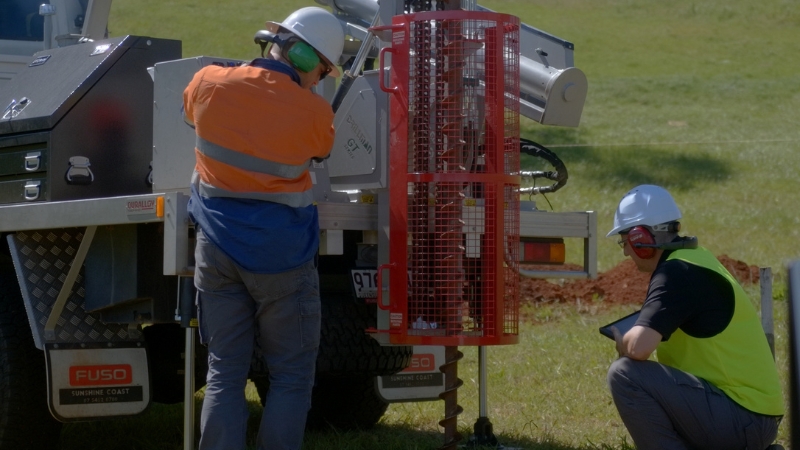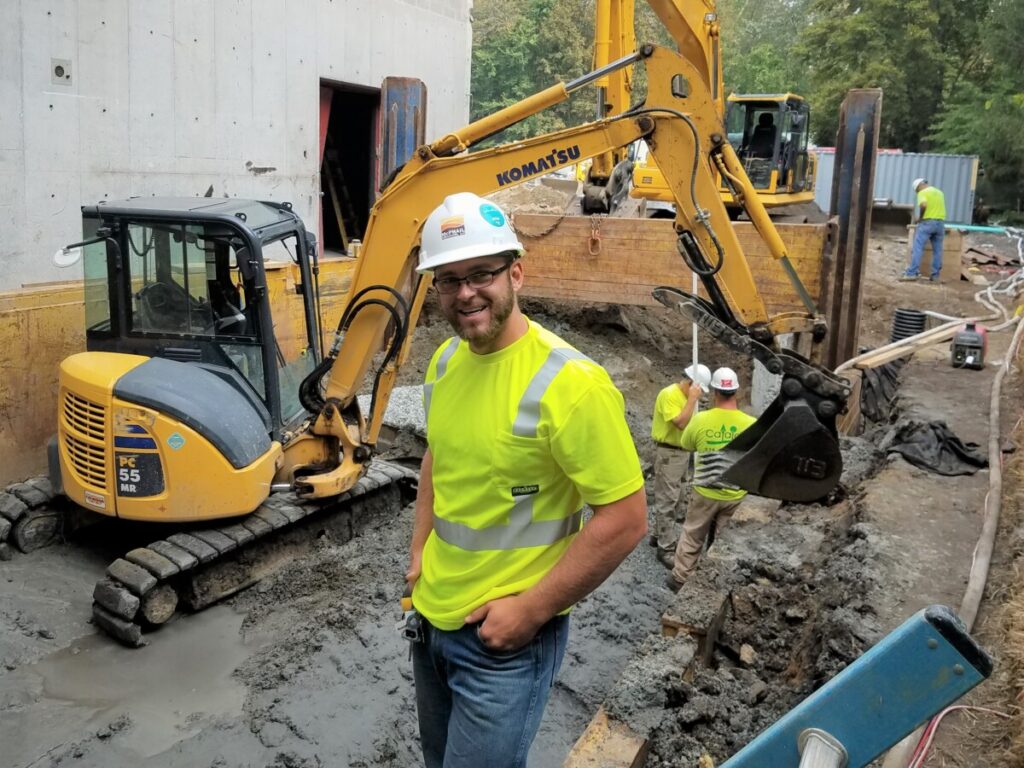Just How Geo Tech Engineering Sustains Large-Scale Construction Projects
Just How Geo Tech Engineering Sustains Large-Scale Construction Projects
Blog Article
Recognizing the Comprehensive Function of Geotechnical Engineers in Ground Investigation and Soil Evaluation for Building And Construction Projects
Geotechnical designers are important to the success of construction tasks, supplying necessary insights via detailed ground investigations and dirt evaluation. Their experience in examining dirt habits and using sophisticated screening methods educates vital decisions that maintain architectural stability and safety and security. By working together and identifying prospective dangers with multidisciplinary groups, these specialists substantially influence job outcomes, including effectiveness and cost-effectiveness. The details of their role typically prolong past these features, motivating a much deeper expedition into the approaches they utilize and the ramifications of their searchings for on total task stability.
Function of Geotechnical Engineers
The critical role of geotechnical engineers in construction projects can not be overstated, as they provide essential understandings right into dirt actions and website problems. These experts are entrusted with examining the viability of the ground for different sorts of frameworks, ensuring safety and security throughout the construction process. Their competence incorporates a vast variety of activities, consisting of site characterization, dirt sampling, and research laboratory screening, which are crucial for establishing the physical and mechanical buildings of the dirt.
Geotechnical engineers use their searchings for to develop fundamental layouts that fit load-bearing requirements and minimize risks associated to soil slope, liquefaction, and settlement security. They play a crucial duty in recognizing possible dangers, such as groundwater fluctuations and contamination, which can substantially impact job practicality. In addition, they collaborate with designers, civil designers, and specialists to guarantee that geotechnical factors to consider are integrated right into the total design and building and construction stages.
Ground Investigation Techniques
Ground investigation strategies create the backbone of geotechnical engineering, allowing designers to obtain an extensive understanding of subsurface problems. These strategies are crucial for evaluating dirt residential properties, determining groundwater levels, and determining prospective geological threats.
Common methods include borehole drilling, which enables for the removal of dirt examples at numerous midsts, giving crucial data for analysis. In addition, in situ testing strategies, such as Typical Infiltration Tests (SPT) and Cone Infiltration Tests (CPT), are employed to evaluate soil toughness and density straight in the ground.
Geophysical approaches additionally play a substantial function in ground investigations. Techniques such as seismic studies and electric resistivity tomography help assess subsurface features without substantial excavation. civil consulting engineers. These non-invasive techniques are particularly valuable in huge or sensitive locations where interruption should be lessened
Additionally, exploratory trenches can be dug deep into to visually inspect dirt layers and identify any kind of anomalies. Each of these strategies contributes unique understandings, allowing geotechnical designers to create accurate site evaluations and inform style choices. In summary, a combination of these ground examination methods is vital for successful building and construction jobs, ensuring security and architectural honesty.
Soil Evaluation Methods
Soil evaluation methods are important for understanding the chemical and physical residential or commercial properties of dirt, which straight affect the style and building and construction of foundations and various other frameworks. Numerous techniques are utilized to examine soil qualities, making certain that geotechnical engineers get accurate data for notified decision-making.
One typically made use of method is grain dimension analysis, which identifies the circulation of fragment visite site dimensions within a dirt sample. This is important for categorizing dirt kinds and forecasting their habits under lots. An additional vital method is Atterberg restrictions screening, which evaluates the plasticity and moisture content of fine-grained soils, offering insights into their design residential properties.

Field tests, such as Standard Infiltration Tests (SPT) and Cone Infiltration Examinations (CPT), deal useful in-situ data concerning dirt strength and stratification. Collectively, these dirt analysis approaches form the structure of geotechnical investigation, allowing engineers to make safe and reliable frameworks tailored to the particular problems of the site.
Danger Reduction Strategies
Implementing efficient risk reduction techniques is important for geotechnical designers to resolve prospective check my blog obstacles in construction tasks. These approaches are critical in recognizing, evaluating, and managing dangers related to soil conditions, website stability, and groundwater variations, which can adversely impact task outcomes.
One primary technique includes performing comprehensive site examinations that use innovative geophysical strategies and comprehensive dirt tasting. By getting exact information on subsurface problems, designers can make enlightened choices on layout and construction techniques. Furthermore, utilizing anticipating modeling tools enables the simulation of numerous circumstances, making it possible for designers to predict potential troubles and apply preventive measures.
Additionally, establishing clear communication channels amongst job stakeholders promotes a collaborative method to risk management. Normal updates and appointments make certain that all celebrations recognize the developing site conditions and can adjust their approaches appropriately.

Effect On Building And Construction Tasks
The efficiency of threat reduction approaches straight affects the total success of construction projects. Geotechnical engineers play a pivotal role in this domain, as their competence in ground examination and dirt evaluation informs vital decisions throughout the building process. By accurately evaluating soil problems and recognizing possible threats, these specialists allow job teams to devise effective remedies that lower threats connected with ground instability, water infiltration, and other geotechnical obstacles.
The influence of detailed geotechnical evaluation is obvious in different aspects of construction tasks, including cost monitoring, task timelines, and structural honesty. Early identification of issues permits timely interventions, decreasing expensive delays and budget plan overruns. A comprehensive understanding of website conditions boosts the design and design process, making certain that structures are constructed to stand up to ecological pressures and possible natural calamities.
Inevitably, the contributions of geotechnical designers are integral to the effective execution of building projects. Their work not just fosters security and conformity with policies yet also improves the lasting sustainability of frameworks, making sure that they execute efficiently throughout their desired lifespan. The partnership in between geotechnical teams and other stakeholders is vital for attaining optimal outcomes in building endeavors.
Final Thought
To conclude, geotechnical engineers do an essential feature in building and construction projects with thorough ground investigations and soil analyses. Their proficiency in examining dirt actions, employing numerous investigation techniques, and carrying out threat reduction approaches substantially adds to the architectural integrity and security of developed settings. By collaborating with multidisciplinary teams, these experts improve project performance and ensure compliance with security requirements, eventually causing effective building and construction end results and minimized prospective dangers.
Geotechnical engineers are essential to the success of construction tasks, providing important insights through thorough ground examinations and soil analysis.The pivotal duty of geotechnical designers in building jobs can not be overstated, as they give crucial understandings into dirt habits and site problems. Their proficiency incorporates a vast variety of activities, consisting of site characterization, soil navigate to this website tasting, and lab screening, which are vital for figuring out the physical and mechanical properties of the soil.
By properly examining soil problems and identifying possible dangers, these professionals make it possible for job groups to develop effective options that reduce threats connected with ground instability, water infiltration, and various other geotechnical challenges.
In final thought, geotechnical engineers do an important feature in building tasks through thorough ground investigations and dirt evaluations.
Report this page